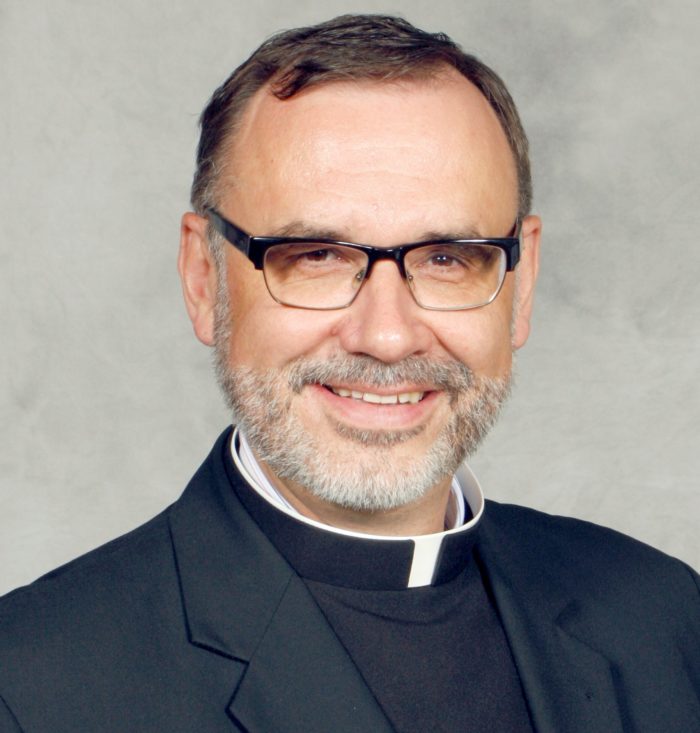We Are Called to Love, Not to Judge
23rd Sunday of Ordinary Time – Year A
 The most important maxim in each country is justice. Justice regulates the law in each society, such that societal order depends on it. However, when we consider God’s law, we discover that along with God’s justice, there is something more: Love.
The most important maxim in each country is justice. Justice regulates the law in each society, such that societal order depends on it. However, when we consider God’s law, we discover that along with God’s justice, there is something more: Love.
In St. Paul’s letter to the Romans, he writes: “Love is the fulfillment of the law.” What, however, is true Love? Or, rather: in Whom is true Love manifested? We believe that Jesus Christ, the Second Person of the Holy Trinity, is Love. Love is a person: Jesus Christ. Jesus’ life is the fulfillment of the Law because He paid the sacrificial price of His life to make it possible for us to be united with Him—with Love—forever.
My brothers and sisters, just as Jesus loves us, we too are called to love. Jesus speaks very clearly about our obligation as Christians to love God with all of our minds, our hearts, and our souls, and we are to love our neighbor as ourselves. We are reminded of this in today’s Second Reading from the letter of St. Paul to the Romans. What does it mean to love our neighbor? It means that we have an obligation to pray for our family members, for our friends, and especially for those who cause problems or are difficult to love.
In the first reading and in the Gospel, we also learn that we have an obligation to fraternally correct others. If we witness a fellow Catholic who is not living according to the teachings of the Church or someone who is doing something seriously or morally wrong, then we have an obligation to lovingly remind this person of the truth and gently encourage this person to follow the teachings of the Church. And I would like to emphasize: we must always correct another out of love (and not out of a desire to win and argument or prove that we are in the right). Sometimes, my brothers and sisters, for certain reasons it is not always possible to speak with this person. In this case, we can, as I mentioned before, pray in his or her intention.
In addition, it is important to remember that we must not judge other people. If we see someone doing something wrong, or if someone is difficult for us, then we may acknowledge that his/her actions are wrong and fraternally correct the person, but we must not judge the person’s heart. For, only God truly knows the heart and the intentions of each person.
My brothers and sisters, we are called “brothers and sisters” because we are called to look upon others with love, just as God looks upon us with love. It is not easy to love those who are difficult and cause problems. It requires a lot of humility. Nevertheless, Christ obligates us to love, and He gives us the grace to love if we ask Him for this grace.
I would like invite you to reflect on these questions throughout this upcoming week: “How do I look at my brothers and sisters in whom Christ is present? How do I look at someone who is difficult for me? Do I judge him or her, or do I look at this person with love? Do I try to pray for this person?”
I would like to encourage each of you, brothers and sisters, to offer to Jesus during this Mass and every day all of your weaknesses and sins in the area of loving your neighbors. If you offer Him everything with faith and ask for His help, then surely Jesus, on His part, will transform all of your weaknesses and sins. Even more, He will give you His grace to see others through His eyes and look upon them with love, through prayer and good words.
Yours in Christ,
Father Arthur
Readings for the Twenty-third Sunday in Ordinary Time: Lectionary 127
Tags: #arturmarat, #homily, #love, #olw, #olwparish


Comments are closed here.